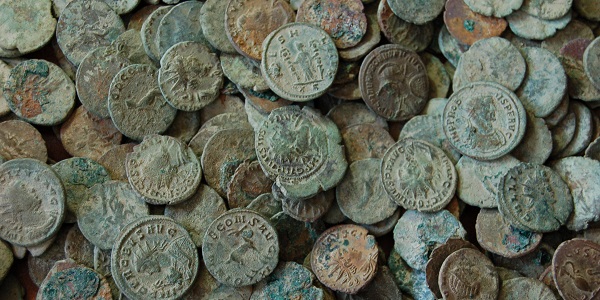
June 28, 2015, by Oliver Thomas
Catullus 16, Money for Nothing, and the value of art
By Helen Lovatt.
My son is discovering the music of the past via Spotify. Last week he said: ‘Let’s listen to the one with “chips for free”. I really like that one.’ After some discussion and quotation of lines (‘We gotta move these refrigerators’) it became apparent that he meant Money for Nothing by Dire Straits. I had to explain what was meant by ‘chicks for free’. Jonathan maintains he would prefer chips.
The upshot of all this was that I really listened carefully to the track, and I was struck by some similarities to Catullus 16, pedicabo ego vos et irrumabo (translated by Guy Lee as ‘I’ll bugger you and stuff your gobs’).
Money for Nothing (1985) is in the voice of an imagined audience member, who loves watching MTV, but thinks rock stars are not worth the money they are paid. While he works hard distributing the white goods that symbolise the culture of consumption (refrigerators, microwaves, colour TVs), musicians get ‘money for nothing and chicks for free’. He questions the value of music while also revealing an envious desire to be part of it. The ground-breaking music video depicted the American worker from whose viewpoint the lyrics are written, as a computer animation.
Further, the fact that Mark Knopfler deliberately emulated a particular commercial style (the guitar sound of ZZ Top), and that the song includes Sting alluding to his own song Don’t Stand So Close to Me, creates a textuality and self-referentiality similar to that of Latin poetry.
In Catullus 16, the poet responds to critics (Furius and Aurelius, who seem from elsewhere in his poetry to be his friends), who have criticised his masculinity because he writes poems about kisses. He uses his poetry to take revenge by performing imaginary anal and oral rape and thereby demonstrating his virility.
But both Dire Straits and Catullus undercut what they say by how they say it. Catullus is in fact still writing poetry; his claim for the power and effectiveness of poetry relies on the poetry itself already being effective. Similarly, Dire Straits are getting ‘money for nothing’ by performing Money for Nothing. They are the musicians on MTV about whom the imaginary audience members are complaining.
Both poem and song rely on the audience not fully identifying with one typical audience-response which devalues the art and artist. Both set art and the lifestyle of the artist in opposition to conventional morality and value. The Roman criticism is imagined mainly in terms of staking a claim to a proper masculine role in Roman society: Catullus should not be wasting his time on girly love-poetry. For Dire Straits the contrast is expressed primarily in terms of monetary value and class: rock musicians get away with a fraudulent claim on the money of working people, without doing ‘real’ work.
But masculinity is part of Money for Nothing too: the critics are specifically male; ‘chicks for free’ implies that musicians prostitute themselves in return for undeserved reproductive success. If they did real work they would be real men. The speaker refers to the musician as ‘that little faggot with the earring and the make-up’ – a line which caused controversy. Conversely class is also there in Catullus, since only the elite can be real Roman men. Both song and poem display anxieties about the way that works of art become the property of the receiving audience and cannot be controlled by the artist.
What struck me most forcefully in the comparison of these very different works of art is the way that irony complicates and subverts the expected relationship between author, work and audience. If Furius and Aurelius are also rival poets, then both share too a sense of artistic envy, in which the audience desire to become the authors, and the authors acknowledge their own insecurity that perhaps it is all Money for Nothing after all.
Image: Roman coins from the Frome Hoard, (c) Portable Antiquities Scheme, via Wikimedia Commons.
No comments yet, fill out a comment to be the first

Leave a Reply